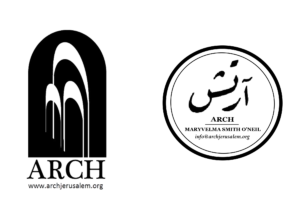ARCH presents
Mamilla Poetry Festival
“A Dialogue with Memory”
25-27 October 2013
In cooperation with
Mahmoud Darwish Foundation and Museum, Ramallah
And
Campaign to Preserve Mamilla Jerusalem Cemetery
Guidelines & Submission Form (PDF download)
In Jerusalem, and I mean within the ancient walls,
I walk from one epoch to another without a memory
to guide me.
– Mahmoud Darwish
Resting just west of the walls of the Old City of Jerusalem, Mamilla Cemetery—necropolis of shrines, distinguished mausoleums, modest graves, and the ancient Mamilla Pool—is facing final desecration and destruction.
Mamilla’s venerable history is as rich as it is layered. Having been adopted first by the Byzantines, whose 4th century church and cemetery marked it as holy ground, Mamilla was then designated an Islamic burial site as early as the 7th century, when the remains of the very first Muslims—the Sahabah, companions of the Prophet Muhammad—were reputedly laid to rest in its sacred soil. Aside from a brief period as a Christian cemetery during the Crusades, Mamilla served without interruption as Muslim burial grounds over the course of a 1,400 year-period of Islamic rule over Jerusalem. Growing to become the largest Islamic cemetery in the city, it housed a diverse community of Muslims, from the respected soldiers of ruler Saladin to generations of Jerusalemites spanning a wide socio-economic spectrum. Tombs of emirs, muftis, Sufi shrines and Mamluk-era mausoleums—amongst other ancient monuments and gravestones—further attest to its hallowed history. Indeed, so holy was Mamilla that in the 14th century A’lam, interment there was likened to being buried in heaven.
Today, Mamilla stands not only as a symbol and vestige of Palestinian—and Muslim—religious and cultural heritage but also as a site of exceptional universal value. In light of its sacred significance, the plan to build a so-called “Museum of Dignity and Tolerance” on its soil is an affront to memory and identity.
Encouraged by a renewed hope for the preservation of Mamilla, ARCH (Alliance to Restore Cultural Heritage in the Holy City of Jerusalem) joins hands with the Mahmoud Darwish Foundation and Museum and the Campaign to Preserve Mamilla Jerusalem Cemetery to organise an International Poetry Festival.
With the aim of protecting and preserving the cemetery as a place of living memory and of eternal sanctity, we welcome poetry that celebrates Mamilla as a resting place for generations of Palestinian families. Likewise, we welcome submissions that meditate upon and imagine the lives of notables and ordinary people alike who have been buried in its holy grounds.
Inspired by Seamus Heaney’s claim that every poet has double citizenship—one of locality, one of conscience—we invite poets to reflect upon locality to explore universal themes that transcend geographical boundaries.
Poetry’s crucial role in the formation of cultural identity is undeniable, especially when it provides agency in the protection and preservation of memory. As Mahmoud Darwish affirmed, “Poems can’t establish a state. But they can establish a metaphorical homeland in the minds of the people. I think my poems have built some houses in this landscape.”
This land absorbs the skins of martyrs
This land promises wheat and stars
Worship it!
We are its salt and its water
We are its wound, but a wound that fights.
– Mahmoud Darwish
A distinguished panel of six literary figures from around the world will review all content received to select twenty final submissions, which will then be performed live (or digitally broadcast) between the 25th and 27th of October at the Mamilla Poetry Festival, hosted by the Mahmoud Darwish Foundation and Museum in Ramallah. The festival will be recorded, and then streamed online; finally, an anthology will be published. Circumstances permitting, the festival will conclude with a candlelight reading of Mahmoud Darwish’s poetry in Mamilla Cemetery and/or at other vulnerable cultural sites in the Holy City of Jerusalem.
In addition to conducting widespread outreach to generate global awareness and solicit international involvement, we are committed to galvanizing nearby communities and engaging local youth. Not only will a special prize be offered for the best poem submitted by a secondary-school student, but local schools will also be invited to attend and students will be encouraged to participate.
We invite all interested parties to visit the cemetery—albeit virtually—by reviewing the biographical details of some of the earliest-recorded deceased; these can be accessed via an online petition to protect the cemetery from further encroachment that was signed by 60 descendants of those same deceased.
For further information:
“The Mamilla Cemetery; A Buried History” by Asem Khalidi
Download the PDF file of “Mamluk Epitaphs from Mamilla Cemetery” by Tawfiq Da‘ādli


